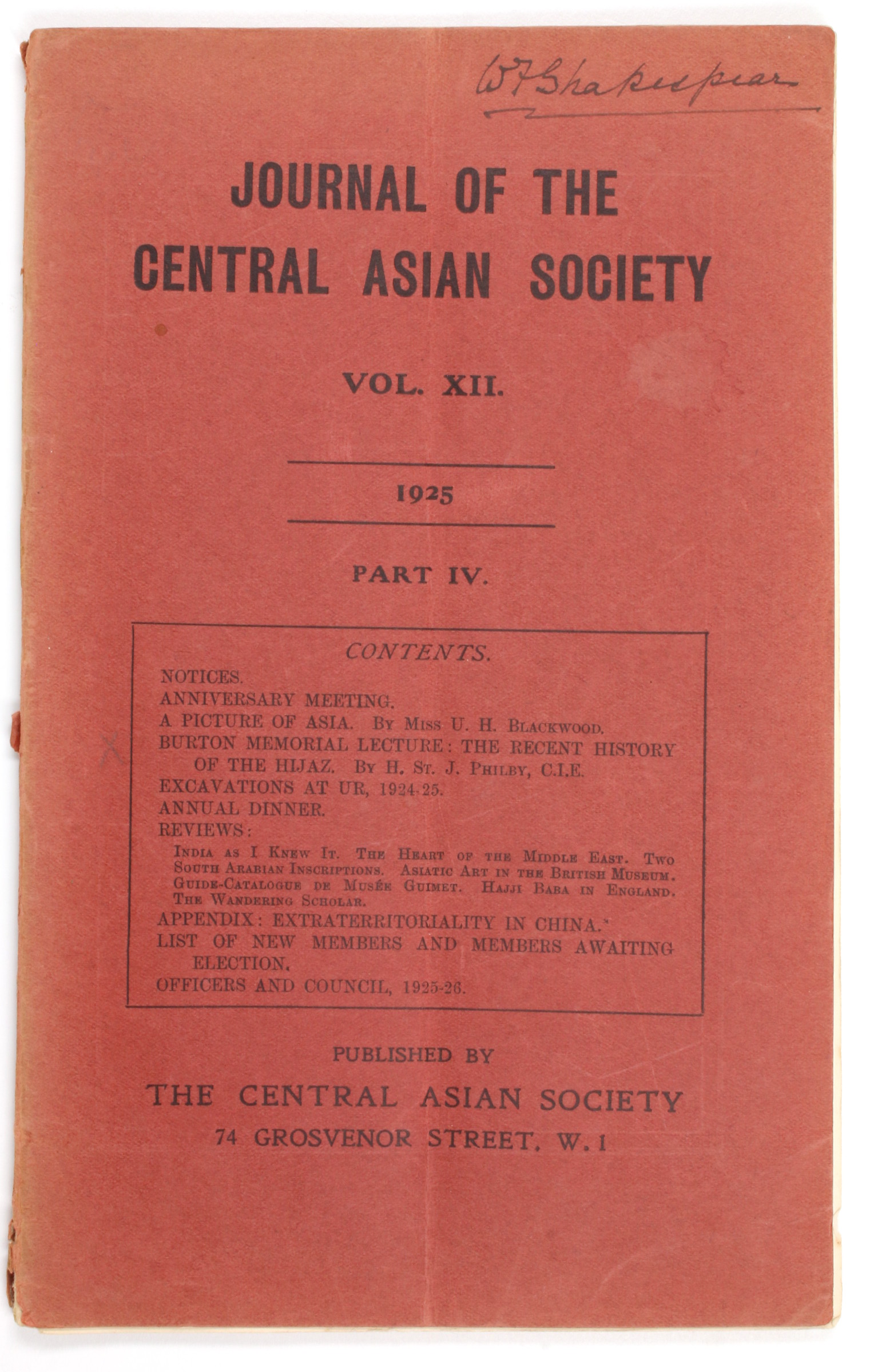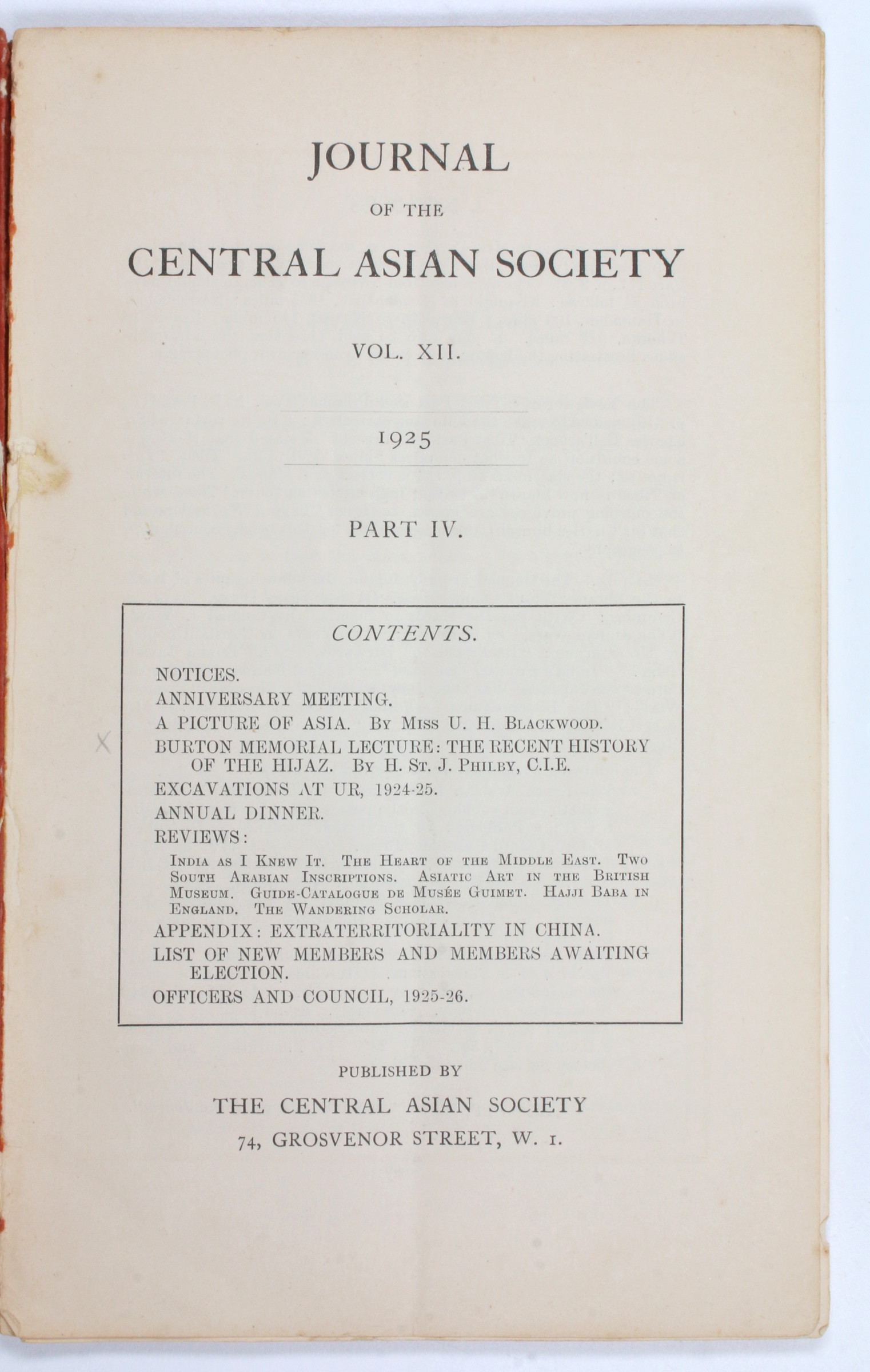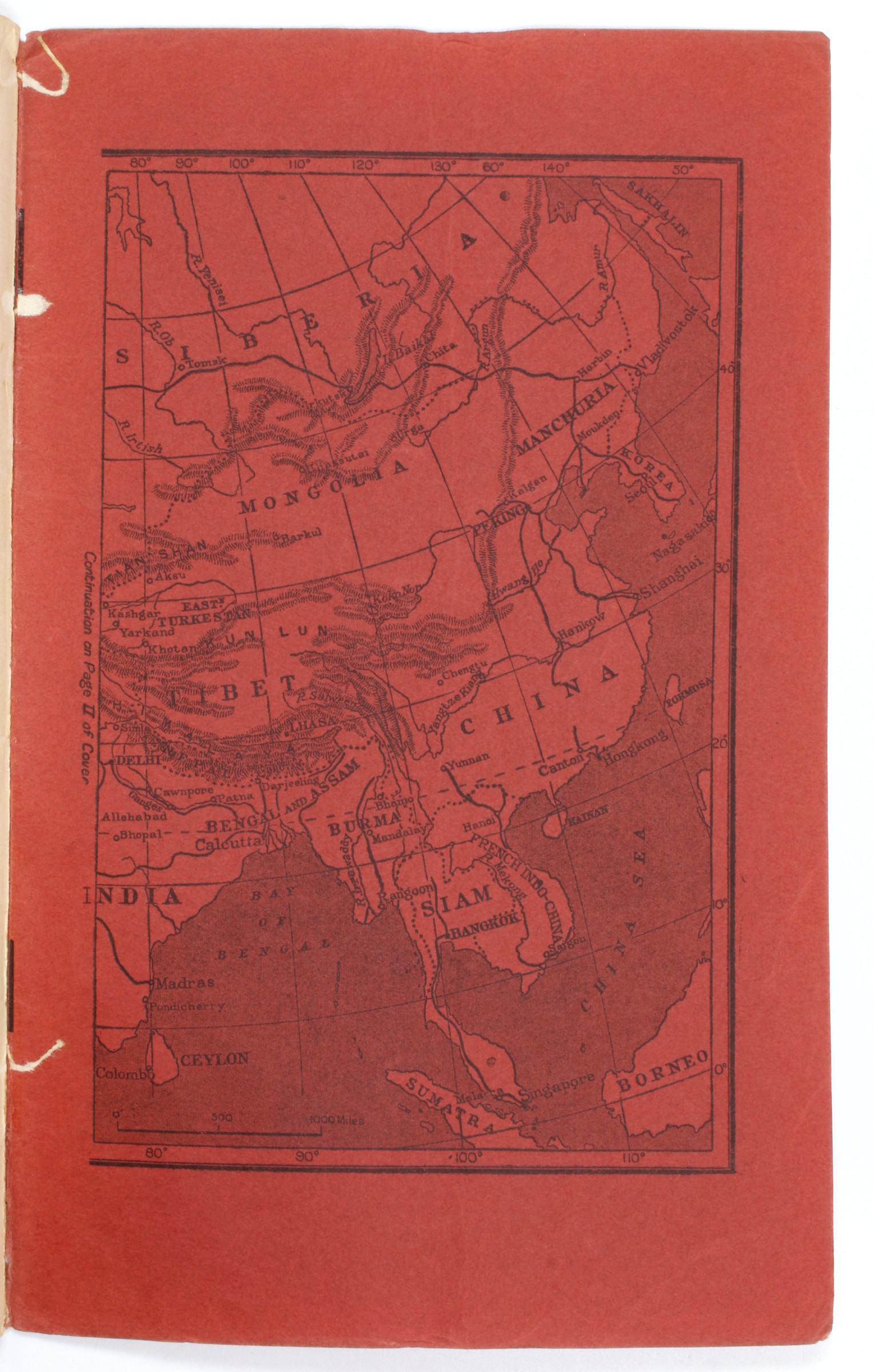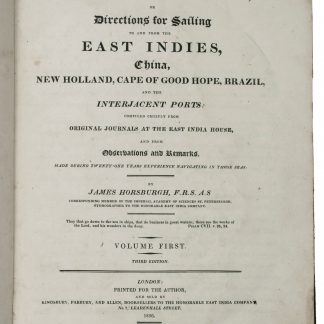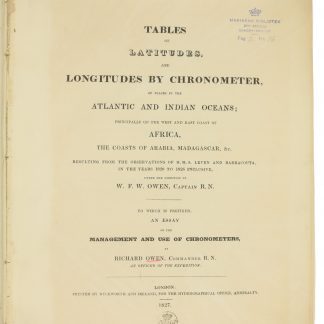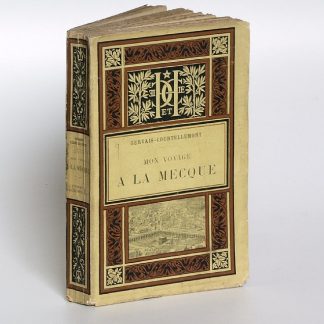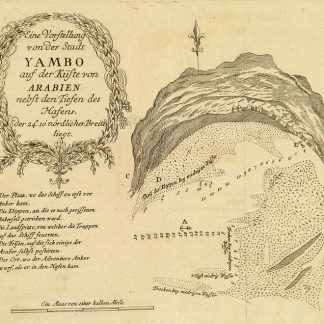St John Philby on politics and people in the Hejaz
Burton Memorial Lecture: the Recent History of the Hijaz. (Journal of the Central Asian Society Vol. XII Part IV).
8vo. 332-348 pp. [entire volume: (1), 306-392 pp.]. Original red printed wrappers.
€ 450.00
First edition. An exploration of the author's unique perspective on the socio-political situation in the Hejaz after the Arab Revolt and the end of WWI.
St John Philby (1885-1960), also known by his Arabian name "Sheikh Abdullah", was an Arabist, explorer, writer, and British colonial office intelligence officer. Educated at Trinity College, Cambridge, he studied languages and was a friend and classmate of Jawaharlal Nehru, later prime Minister of India. Philby settled in Jeddah and became famous as an international writer and explorer. He personally mapped on camelback what is now the Saudi-Yemeni border on the Rub' al Khali; in 1932, while searching for the lost city of Ubar, he was the first Westerner to visit and describe the Wabar craters. At this time, Philby also became Ibn Saud's chief adviser in dealing with the British Empire and Western powers. He converted to Islam in 1930. The personal contacts between the United States and Saudi Arabia were largely channeled through the person of Philby.
With the ownership inscription of W. F. Shakespear, perhaps a relation of the Captain William Shakespear later praised by Philby for his role in British-Arabian politics, who was killed in 1915. Light exterior wear with a vertical crease; in good condition.
Macro 1780.

